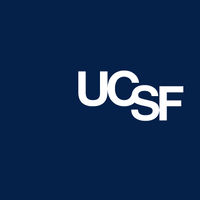预约演示
更新于:2025-05-07
Hyperkalemia
高钾血症
更新于:2025-05-07
基本信息
别名 Elevated serum potassium levels、HYPERKALAEMIA、HYPERKALEMIA + [47] |
简介 Abnormally high potassium concentration in the blood, most often due to defective renal excretion. It is characterized clinically by electrocardiographic abnormalities (elevated T waves and depressed P waves, and eventually by atrial asystole). In severe cases, weakness and flaccid paralysis may occur. (Dorland, 27th ed) |
关联
20
项与 高钾血症 相关的药物靶点 |
作用机制 NS3/NS4A抑制剂 |
在研机构 |
原研机构 |
在研适应症 |
非在研适应症 |
最高研发阶段批准上市 |
首次获批国家/地区 中国 |
首次获批日期2018-06-08 |
作用机制 Potassium 调节剂 |
在研机构 |
原研机构 |
最高研发阶段批准上市 |
首次获批国家/地区 欧盟 [+3] |
首次获批日期2018-03-22 |
208
项与 高钾血症 相关的临床试验NCT06366230
Adding Urea to the Final Dialysis Fluid in Order to Prevent Dialysis Disequilibrium in Patients Who Need Aggressive Dialysis for Electrolyte Abnormalities
At times patients with advanced renal failure present with severe hyperkalemia or acidosis and very high serum blood urea nitrogen (BUN) concentrations. These patients cannot be dialyzed aggressively as the lowering of serum BUN may results in disequilibrium syndrome but on the other hand they need aggressive dialysis in order to lower their serum potassium or fix their severe acidosis. If one is able to add urea to the dialysis fluid, one can prevent the rapid lowering of serum BUN and osmolality at the same time as doing aggressive dialysis to lower serum potassium and/or fix the metabolic acidosis.
开始日期2025-07-01 |
NCT06858280
Impact of Patiromer Treatment on Dietary Potassium Intake Restriction and Health-related Quality of Life and Nutrition in Patients on Chronic Dialysis Therapy: a Double-Blind, Prospective, Randomized, Placebo-Controlled, Pilot Trial
This is a phase III, prospective, randomized, double-blind, placebo-controlled, single-center, pilot trial, aimed at assessing whether treatment with the oral potassium binder patiromer as compared to placebo allows withdrawal or down-titration of potassium dietary restriction without increasing the risk of hyperkalemia in chronic dialysis patients.
开始日期2025-06-15 |
申办/合作机构- |
NCT06884267
A Prospective, Multicenter, Single Arm Study to Evaluate the Impact on the Implementation of Standardized Hyperkalemia Management in Chronic Kidney Disease Patients
This is a prospective, multi-center, single-arm study to evaluate the impact of implementation of guideline determined medical therapy (GDMT) for quality control improvement in non-dialysis chronic kidney disease (CKD-ND) patients, as well as provide evidence for standard hyperkalemia management with RAASi optimization in China CKD-ND patients.
开始日期2025-05-21 |
申办/合作机构 |
100 项与 高钾血症 相关的临床结果
登录后查看更多信息
100 项与 高钾血症 相关的转化医学
登录后查看更多信息
0 项与 高钾血症 相关的专利(医药)
登录后查看更多信息
14,180
项与 高钾血症 相关的文献(医药)2025-12-31·Renal Failure
Simple methods for estimating the maximum 24-hour urinary potassium excretion in kidney failure without replacement therapy patients
Article
作者: Wang, Yukun ; Zhang, Danyang ; Jiang, Shimin ; Li, Wenge
2025-12-31·Journal of Medical Economics
The role of sodium zirconium cyclosilicate drug utilization in managing hyperkalemia: impact on healthcare resource utilization and on maintenance of renin-angiotensin-aldosterone system inhibitor therapy in Italian clinical practice
Article
作者: Cosentino, Nicola ; Nugnes, Marta ; Daniel, Francesca ; Merlo, Andrea ; Mongelli, Valentina ; Gnesi, Marco ; Degli Esposti, Luca ; Maurizi, Anna Rita ; Leogrande, Melania
2025-12-31·Renal Failure
Quality indicators and clinical outcomes: the role of care quality in nondiabetic chronic kidney disease management
Article
作者: Ko, Mei-Ju ; Chien, Kuo-Liong ; Hsieh, Yun-Fang ; Tsai, Ping-Hsiu ; Hsu, Le-Yin ; Tsai, Wan-Chuan ; Wu, Hon-Yen
390
项与 高钾血症 相关的新闻(医药)2025-04-28
·药事纵横
4月27日,国家药品监督管理局药品审评中心(CDE)官网显示,信立泰自主研发的SAL0140片正式获批临床,成为国产首个获批临床的醛固酮合酶抑制剂(ASI),拟用于未控制高血压(包括难治性高血压)的治疗。图源:CDE官网从机制上看,SAL0140 其作为一种高选择性醛固酮合酶(CYP11B2)抑制剂,通过作用于人体盐皮质激素系统的关键调控因子醛固酮,从根本上阻断了醛固酮引发血压升高以及导致心、肾等靶器官损伤的两条通路。传统观点认为醛固酮主要通过激活盐皮质激素受体(MR)介导的基因组信号通路引发水钠潴留和血压升高,而近期研究又发现其可通过非 MR 依赖的非基因组通路直接引发血管炎症、纤维化和氧化应激,加速心、肾等靶器官损伤。SAL0140 片的出现,打破了传统治疗的局限,有望从根本上解决这一复杂难题。临床前数据显示,SAL0140在高血压猴模型中每日一次给药即可显著降低血浆醛固酮水平(降幅达50%-70%),且不影响皮质醇的正常分泌。这一特性使其区别于传统醛固酮受体拮抗剂(如螺内酯)和肾素-血管紧张素系统(RAAS)抑制剂:前者可能引发性激素紊乱副作用,后者则存在“醛固酮逃逸”现象,即长期使用后醛固酮水平反弹。尽管临床前数据乐观,但人体试验可能存在不可预见的差异。此外,高钾血症作为ASI类药物的共性风险,SAL0140能否通过剂量调整或联合用药,如与SGLT2抑制剂联用,参考BI690517的II期结果,实现风险控制,仍需数据验证。中国高血压患者基数庞大,但控制率却仅有16.8%,其中约10%-15% 为难治性高血压患者,这类患者往往需要联合 3 种以上药物进行治疗,却仍难以达到理想的血压控制效果,这些患者通常还伴随着心、肾等器官损伤,迫切需要新的治疗机制药物来突破当前的治疗瓶颈。SAL0140的临床前研究不仅证实其降压效果,还显示其可减少心脏纤维化和肾脏蛋白尿,提示潜在的器官保护作用。若临床试验验证其人体疗效,该药物可能推动高血压治疗从单纯降压转向多靶点器官保护的综合管理。亮点方面,SAL0140具有对终末器官保护的可能性,传统降压药物虽能降低血压,但无法完全逆转醛固酮介导的器官损伤。动物实验表明,SAL0140不仅能降低血压,还可减少心脏纤维化和肾脏蛋白尿。若SAL0140的临床试验能证实其器官保护作用,或将推动高血压治疗从单纯的血压控制转向多靶点器官保护的综合管理。不过,这一目标的实现仍需解决两大难题:一是如何平衡醛固酮抑制与电解质紊乱(如高钾血症)的风险(Lorundrostat试验中7%患者出现血钾>6.0 mmol/L);二是如何通过剂量优化延长药物对终末器官的持续保护时间。技术方面来看,CYP11B2抑制剂开发的最大难点在于其与皮质醇合酶(CYP11B1)的高序列同源性(93%)。早期研究显示,非选择性抑制剂可能干扰皮质醇合成,导致肾上腺功能不全。信立泰在研发SAL0140时强调其“不影响皮质醇水平”,这与第一三共最新披露的磺酰嘧啶类化合物(化合物2)选择性超过80倍的研究结果相契合。不过,选择性仅是药物成功的基础,真正的临床应用还需考量代谢稳定性、药物相互作用等复杂因素。信立泰选择高血压作为SAL0140的首个适应症,体现了对市场需求的精准把握。高血压药物市场容量巨大,且难治性细分领域存在明确未满足需求。与同类竞品相比,SAL0140的优势可能体现在两方面:一是作为国产创新药,在定价与医保准入上更具本土优势;二是其临床前显示的“不影响皮质醇”特性,若在人体试验中得以验证,将显著提升安全性,减少监测血钾的临床负担。除高血压外,醛固酮过量还与慢性肾病(CKD)、心力衰竭等疾病密切相关。勃林格的Vicadrostat在II期试验中显示,与恩格列净联用可使CKD患者尿蛋白肌酐比值(UACR)下降39.5%,且收缩压进一步降低7-8mmHg,提示ASI药物在多适应症联用中的协同效应。信立泰在公告中提到,SAL0140的后续适应症可能包括CKD,若能在高血压领域验证安全性,其适应症拓展将大幅提升市场价值。全球范围内,醛固酮合酶抑制剂的研发竞争激烈。阿斯利康的Baxdrostat和Mineralys的Lorundrostat已进入III期临床,分别针对高血压和慢性肾病(CKD)。其中,Lorundrostat的III期数据显示,其可使难治性高血压患者24小时平均收缩压降低7.9mmHg,但对7%患者引发高钾血症。勃林格殷格翰正在研究Vicadrostat(BI690517)在难治性高血压和慢性肾病(CKD)患者中的应用也抢先一步。信立泰的SAL0140是中国药企在心血管创新药领域的一次重要尝试。近年来,国内药企逐步从仿制药向首创新药转型,但在靶点选择上多跟随跨国药企。SAL0140的研发与全球ASI热潮几乎同步(阿斯利康Baxdrostat的III期始于2024年),体现了本土团队的前瞻性。不过,由于国际巨头在临床资源与全球化布局上的优势,信立泰若想实现“弯道超车”,需在临床试验设计上突出差异化,并提前布局海外市场。信息来源:[1]深圳信立泰药业股份有限公司. (2025). 关于SAL0140药品临床试验申请获得受理的公告. https://salubris.com/NewsUpdates/info_itemid_3461.html[2]健康界. (2025). 醛固酮合酶抑制剂的研发挑战与市场前景. https://www.cn-healthcare.com/articlewm/20220917/content-1436817.html药事纵横投稿须知:稿费已上调,欢迎投稿
临床2期申请上市临床申请
2025-04-27
·医脉通
惊心动魄的“追凶”过程。来源 | “听李医生说”微信公众号作者 | 李鸿政女性患者,37岁,姓孙。几天前孙女士运动后出现肢体乏力,刚开始觉得是正常劳累反应,后来肢体无力的情况越来越重,连吃饭拿筷子都觉得费劲,才想起来要去医院看。进入急诊室时基本上都是靠丈夫搀扶,即便这样都还屡次跌到,最后不得不用病床推了进来。病到这种程度才来医院,当时医生都很惊愕,这女士心也真大。用孙女士自己的话讲,当时以为是过度运动导致的,没想到会是生病。一到医院,跟医生说四肢无力,说话都是轻声细语的,说夸张点就是气若游丝了,医生首先想到了重症肌无力。医生告诉孙女士丈夫,重症肌无力会死人的,亏你们到现在才来医院。夫妻俩本来就惊出一身冷汗,听急诊科医生这么说后更加彷徨了,只能把希望都寄托给医院。“以前有过这样的情况么?”医生问。“没有,今天头一次。”孙女士回答说。“前几天有过剧烈运动?肌肉疼痛吗?”医生又问,“这样的肢体无力还要警惕是不是横纹肌溶解症,过度锻炼会导致肌肉损伤溶解,这个病也是会死人的,你见过跑马拉松跑死人的么,除了是心脏病,还有是这个肌溶解。”急诊科医生面无表情地说。“如果真的有肌肉溶解,那么肌肉细胞里面的电解质(钾钠氯)、肌红蛋白等等都会漫出来,引起高钾血症,这对心脏是个很大的刺激,说不定心跳什么时候就停了。另外,肌红蛋白这些小东西如果堵在肾脏那边,也会导致肾衰竭,会没尿的,肾衰竭也是会死人的。”医生边开单边说。医生几句话不离“会死人”几个字,听得孙女士胆战心惊。“我肌肉好像有点痛,也不是太痛,就是没力气。”孙女士皱着眉头说。“先抽血化验,看看肌酶、肌红蛋白等等水平是否升高,然后做个头颅CT,看看脑袋会不会有问题,有没有脑出血,或者脑肿瘤之类的。”“医生,我也担心我老婆会中风了,我堂叔前段时间也是手脚突然不能动弹,一查就是中风了,中风就麻烦了。”孙女士的丈夫跟医生说,眉头快拧成一团了。“不一定就是中风,只是一种常规排查而已。你老婆有没有高血压、糖尿病、冠心病?”医生继续问。“血压好像有测过偏高一点,没有治疗的。”孙女士自己回答。医生给孙女士简单查体后,除了发现四肢肌力差以外(肌力约3-4级),别的没有显著异常。抽了血,就准备去做CT,突然医生又问孙女士:“这几天有没有吃过什么特殊的食物,有没有呕吐,肚子痛等等不舒服?”“没有,都是在家吃饭的,没啥特殊。”丈夫回答。“那就行!”医生点点头。急诊科医生这么问是有他的考量的,一些食物中毒也可能导致四肢无力甚至瘫痪的,而且食物中毒多会伴随呕吐腹痛等消化道症状,如果患者没有这些表现,那就几乎不考虑中毒可能了。颅脑CT很快就做完了。结果也出来了。没啥特殊的。没有脑出血,没有脑梗死,也没有脑肿瘤。这是好事。孙女士自己也舒服多了,他堂叔中风这件事大家都是知道的,所以肢体力量下降的时候她自己也是非常担心。她丈夫也是喜笑颜开,说不是中风就好。问题是,如果不是中风,为什么四肢肌肉力量会这么差呢,站都站不稳了。难道真的是重症肌无力么?他们是头一次听说这个病。“是科学家霍金那个不能动的疾病么?”孙女士鼓起勇气问急诊科医生,如果真的是那样,那下半辈子就完了。“不是,霍金那个是肌肉萎缩性侧索硬化症,也会导致全身瘫痪不能动弹,但他那个病比重症肌无力严重多了,重症肌无力治疗效果好很多,很多患者通过吃药都可以维持正常的生活能力,不用太害怕。”急诊科医生简单安慰了她几句。“现在不一定是,我们请神经内科医生下来看看再说。”他接着说,“肢体无力属于神经内科疾病范畴,他们更专业。”听了医生这么说,孙女士又放松一些了。自从进来急诊科后,她的心情就跟过山车一样,跌跌撞撞,时而担心自己有生命危险,时而担心自己后半辈子凄凉,时而有期待奇迹的发生,好像一场梦一样。抽血结果出来了,急诊科医生拿着报告说,“肌酸激酶、肌红蛋白几乎都是正常的,应该不是肌肉溶解综合症。但是你的血钾浓度只有2.4mmol/L(正常3.5-5.5),属于重度低钾血症了,我估计是这个原因导致的四肢无力。”孙女士夫妻俩瞪大了眼睛,就是说找到了病因?言语之内难掩兴奋。“嗯,算是吧,也可以说还不是。”急诊科医生沉吟了一会回答说。这句话又让夫妻俩云里雾里了。“那是什么意思?”丈夫问,“严重么?”“我刚刚跟你们讲过了,钾离子会影响全身的肌肉活动,心脏肌肉会,骨骼肌也会,手脚的肌肉都属于骨骼肌,如果血里面的钾离子低的话,会导致肌肉活动障碍,出现肌无力的现象,所以低钾血症可以解释你老婆四肢无力这个情况。只要把钾离子补够,估计肌肉力量会慢慢恢复。“医生解释说,接着他又说,“问题是,为什么会有这么低的血钾呢?”“这段时间胃口不好么?吃饭多不多?”医生问,“低钾血症最常见的原因就是补充补够,长期禁食、偏食、厌食等等会导致摄入钾补够,导致低钾血症的。”孙女士夫妻俩面面相觑,顿了几秒钟。丈夫才缓缓说,“她最近有在减肥,吃的偏少一些。”孙女士辩解,“也不算很少了,每次都差不多吃饱了。再说,我这几年都这样啊,也不见得有什么问题。”“在家有没有用什么药?你高血压吃降压药么?吃过利尿剂吗?”医生继续问,“利尿剂类药物有呋塞米、氢氯噻嗪等,这些药物在利尿的同时也会导致钾离子排除增加,导致低钾血症的。”“没吃过什么药啊。”俩人异口同声。“那就先补钾治疗吧,把血钾补到正常,估计肌肉力量就能恢复了。”急诊科医生说,“至于什么病因,收入院后再慢慢查,可能是内分泌方面的疾病,比如甲亢,一些甲亢患者会导致低钾血症并且有四肢肌肉无力的,我们称之为周期性瘫痪。”“但还是不能排除神经内科疾病,重症肌无力也还是要考虑的。”我让他们下来会诊看看。孙女士同意住院。这时候让她回家都不敢回啊,还是保命重要。神经内科医生听说有肢体无力的患者,下来简单瞧了一眼,问了几个问题,说现阶段还是考虑低钾血症导致的肢体无力可能性大,要警惕对心脏的影响,“心电图做了么?”“做了,问题不是很大。”急诊科医生拿出心电图说。“低钾血症本身就会导致肌肉无力,但背后有什么疾病,会不会是神经内科一些疾病引起的,比如重症肌无力、格利巴利综合征(吉兰巴雷综合征)等等还不好说,必要时可完善腰椎穿刺检查。但同时也要警惕内分泌方面疾病,比如原发性醛固酮增多症。”原醛症?急诊科医生瞪大了眼睛。“是的,前段时间我们才遇到一例顽固性高血压的患者,怎么用药都降不下来,后来发现患者血钾也是偏低,一查,就是原发性醛固酮增多症。醛固酮是一种内分泌激素,会导致水钠潴留、钾离子排泄过多,进而引起高血压、低血钾,这是非常典型的表现,这个患者虽然没有明确的高血压病史,但是既往说有过血压偏高的情况,而且入院测量血压150/80mmHg,还是要警惕这个病的。”急诊科医生一拍大腿,说我竟然把这病给忘了。“那不出奇啊,哈哈,你们见脑出血、脑梗死、心梗、主动脉夹层、各种中毒、心衰、呼吸衰竭、肾衰等等见得多了,自然没精力关注这些小病了。”神经内科医生打趣说道。“那不行,还是我的疏忽。高血压、低血钾就要警惕这个原发性醛固酮增多症,下次我就印象更深刻了。说不定这个孙某就真的是这个病,不一定是你神经内科的疾病。”神经内科医生哈哈笑道,“那这么样,还去不去我们科,还是说去内分泌科?”“那就去内分泌科吧,今晚算我看走眼了。”急诊科医生摸着本以不多头发的头顶尴尬笑了笑。这些对话当然都是在病人和家属听不到的地方说的。送走了神经内科,又把内分泌科医生叫了下来。孙女士见短时间内来了两名会诊医生,隐隐觉得担心,该不会是疾病比较棘手吧。内分泌科医生听了病情介绍后,缓缓点头,说这个情况的确遥考虑原醛症(原发性醛固酮增多症)可能,如果不及时处理,万一患者发生呼吸肌肉没力气,出现呼吸衰竭,那就麻烦了。孙女士听到这话后,突然之间就觉得自己好像呼吸都费力一些了,脸露恐色。急诊科医生见状,说:“我们已经采取急症措施了,已经在为你补充电解质的了,一般不会有大问题,不用太担忧,配合我们就行。”当晚就收入内分泌科。凌晨复查电解质的时候,血钾已经升至2.9mmol/L了,比之前高了一些。孙女士自己感觉手脚力气也稍微好一些,医生到床边查房时她也终于能露出一点笑容了。“手脚没力气的感觉真的是巨无助的。”孙女士说。“你老婆有高血压,你应该一早就陪她来医院检查,而不是任由发展,如果早些来医院,说不定早些发现问题,就不会有今天这事情了。”“都怪你。”医生半开玩笑地指着孙女士丈夫说。“是我,怪我,没照顾好老婆。希望医生能尽最大努力帮助我们感激。”孙女士丈夫一脸诚恳。第二天一大早,内分泌科主任就来查房了。主任听取病史汇报后,同意首先要考虑原发性醛固酮增多症这个病可能,主任跟孙女士解释,“人体肾脏的上面有一个小腺体,叫做肾上腺,肾上腺会分泌很多激素的,其中一种就是醛固酮,如果因为某些病理因素导致醛固酮分泌过多,就会出现问题。因为醛固酮本身会引起钠潴留、排钾、细胞外液扩张、血容量增多等,所以你会有高血压、低血钾这样的表现,而低血钾会导致肌肉没力气,血钾越低,肌肉受累越重。简单来说,就是你体内一个激素多了,出现了一系列的表现。”主任一席话,讲的通俗易懂,而且和蔼可亲,听得孙女士热泪盈眶。但孙女士不明白的是,自己这个病什么时候开始的,为什么突然这么严重了。“你这个病可能有比较长时间了,也可能是近期才有的,这个不好讲,至于为什么会加重,估计跟你的运动有关,研究表明运动锻炼、或者使用利尿剂等等都会诱发这个病加重的。一般先是下肢无力,然后上肢无力,最后可能是呼吸肌肉无力,也有部分人是吞咽无力。”“下一步,我们要明确查一查,你到底是不是这个病。只要查血里面的激素水平就知道了。”主任跟孙女士说。当天就做了血浆醛固酮浓度、尿醛固酮浓度检查,由于体内醛固酮浓度受到体位的影响,卧位的时候醛固酮浓度低,立位的时候醛固酮浓度高,所以要分别在孙女士立位、卧位时抽血。还查了肾素、血管紧张素II水平,这两个激素都跟醛固酮浓度相关,这几个激素水平都是息息相关的。甲状腺素,甲状腺B超也做了。因为甲亢也会导致低钾血症肌肉无力的。主任说,可别忘了排查甲亢,这个是有过教训的。做了激素检查,还要进一步做肾上腺CT。主任说:“激素水平只能说明体内激素真的高了,但是是什么原因导致升高的,是肾上腺长了肿瘤,还是增生,或者有其他的问题,还是需要CT来进一步确认。举个例子,现在江湖上出现了一群秘密杀手(醛固酮),我们作为正派人士,不单只能发现这些杀手,还要能找到他们的老巢,把他们的老巢一锅端了,才算是替天行道。这个老巢到底在哪呢?是只有一个训练场而已,还是说有几个分档口,只能靠CT来定夺了,CT能看到是一边肾上腺有问题,还是两边有问题,肿瘤是一个还是多个,个头大不大,能不能手术切掉,都是很关键的。”主任的比喻,孙女士一下子就听懂了。结果出来了,血浆里面醛固酮水平显著升高,肯定了醛固酮增多症的诊断。当时就给用上了螺内酯这个药,螺内酯这个药是专门对抗醛固酮的,醛固酮的功能是保钠排钾,而螺内酯正好相反,是保钾排钠。下午CT结果也出来了。果然不出所料,孙女士左侧肾上腺上面长了一个小肿瘤。肿瘤不算很大,大概直径0.7mm。如果不是高分辨率CT都不容易看得到。估计就是个醛固酮瘤。正因为这个瘤子的存在,导致了醛固酮分泌增多,从而引起后续一系列问题,包括血压升高(孙女士正式诊断有高血压了,以前也有,只不过没诊断而已)、低钾血症、四肢无力。水落石出。不是脑中风,不是重症肌无力,也不是甲亢,不是横纹肌溶解症,而是这个醛固酮瘤引起的醛固酮增多症。主任开玩笑着说,“你都可以去买彩票了,那么多高血压病人,大概有10%的人是因为醛固酮增多导致的高血压,这种高血压任你怎么用降压药都是很难控制的,只有用螺内酯才行,或者手术切掉肿瘤才行。”“主任,这个肿瘤是恶性的么?会不会转移?”孙女士丈夫最关心这个问题。“看起来像是腺瘤,可以说是良性肿瘤,只要手术能切掉,问题就不大。但也有很少可能性是醛固酮癌,癌就是恶性的了,具体需要手术切出来后做病理组织检查才行。”老天保佑,一定要是腺瘤,不是癌。孙女士自己默念。这回老天的确保佑了,手术顺利做完了,病理结果是个良性腺瘤。皆大欢喜。手术前孙女士的血钾已经补到正常了,肢体力量已经恢复了。手术后观察1年,孙女士未再有高血压情况,也未在有肢体乏力情况发生。通过这个病例,大家对肢体无力、脑中风(脑出血、脑梗死)、重症肌无力、横纹肌溶解症、甲亢性周期性麻痹、原发性醛固酮增多症等等有了一个大概的认识,也希望那些高血压控制不好的患者,一定要警惕自己会不会是原醛症这类继发性病因所致,及时找医生干预。祝好。责编|亦一封面图来源|视觉中国患者张口受限,医生以为是破伤风,但病人的一个“吞咽”动作,真相浮出水面集体患癌?顶级医院同科室5名护士确诊颅内肿瘤,医院回应后仍疑点重重医脉通是专业的在线医生平台,“感知世界医学脉搏,助力中国临床决策”是平台的使命。医脉通旗下拥有「临床指南」「用药参考」「医学文献王」「医知源」「e研通」「e脉播」等系列产品,全面满足医学工作者临床决策、获取新知及提升科研效率等方面的需求。☟戳这里,更有料!
2025-04-25
ECG diagnostics software platform AccurKardia and cardiac medical technology company HeartBeam are joining forces to make AccurKardia's ECG analysis software available on HeartBeam's devices.
HeartBeam's cable-free, 12-lead ECG system captures electrical signals from the heart from three directions to assess arrhythmias.
The platform is designed for portable devices so physicians can identify cardiac health trends and acute conditions wherever patients are.
In January, HeartBeam submitted a 510(k) application to the FDA for its 12-lead ECG synthesis software that assesses rhythms and arrhythmias, sinus rhythm, atrial fibrillation, atrial flutter, bradycardia, tachycardia and sinus with premature ventricular contraction and premature atrial contraction.
AccurECG aims to simplify the interpretation of ECGs by identifying visible and hidden signals and transforming them into diagnostic and broad biomarkers.
The companies claim that the addition of AccurKardia’s device-agnostic automated ECG interpretation platform to HeartBeam’s device has the potential to deliver earlier and more accurate management of heart health.
"This collaboration is a major step forward in delivering a more accessible and scalable solution for remote cardiac monitoring," Robert Eno, CEO of HeartBeam, said in a statement.
"AccurKardia shares our mission of improving cardiac outcomes through technological innovation and together we can accelerate the delivery of unprecedented cardiac insights to individuals and physicians outside of a medical facility."
THE LARGER TREND
In February, HeartBeam announced a public offering of 5.8 million shares of its common stock at $1.70 per share. The company expected gross proceeds of $10 million from the offering.
In a statement, the company said it was using the net proceeds for commercial-readiness activities, research and development, clinical and regulatory projects, and working capital.
In January, AccurKardia received FDA Breakthrough Device Designation for its ECG-based, AI-powered AK+ Guard hyperkalemia detection software.
The investigational technology uses Lead I ECG data to alert patients and clinicians of moderate to severe episodes of hyperkalemia (excess potassium in the blood) that could lead to sudden cardiac arrest.
In 2024, AccurKardia's Aortic Valve Stenosis (AVS) ECG-based AI screening software was granted FDA Breakthrough Device Designation.
突破性疗法诊断试剂
分析
对领域进行一次全面的分析。
登录
或

生物医药百科问答
全新生物医药AI Agent 覆盖科研全链路,让突破性发现快人一步
立即开始免费试用!
智慧芽新药情报库是智慧芽专为生命科学人士构建的基于AI的创新药情报平台,助您全方位提升您的研发与决策效率。
立即开始数据试用!
智慧芽新药库数据也通过智慧芽数据服务平台,以API或者数据包形式对外开放,助您更加充分利用智慧芽新药情报信息。
生物序列数据库
生物药研发创新
免费使用
化学结构数据库
小分子化药研发创新
免费使用





